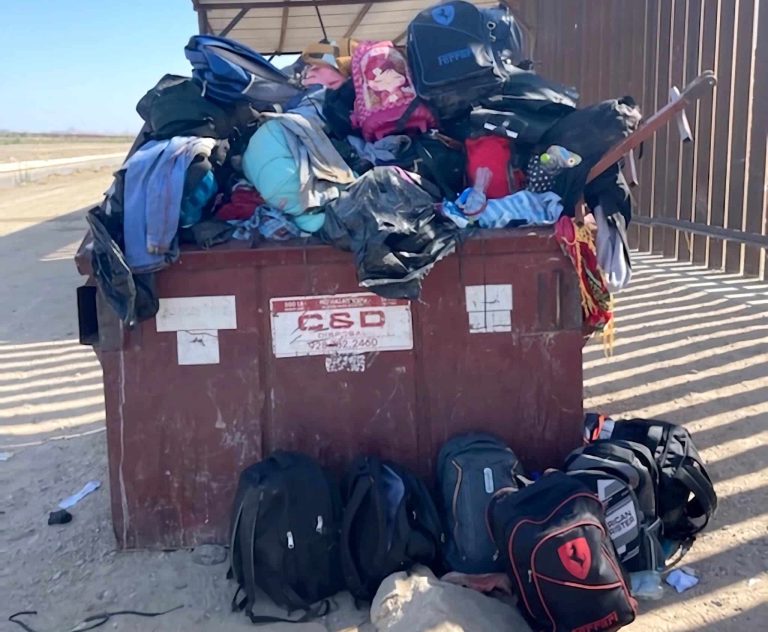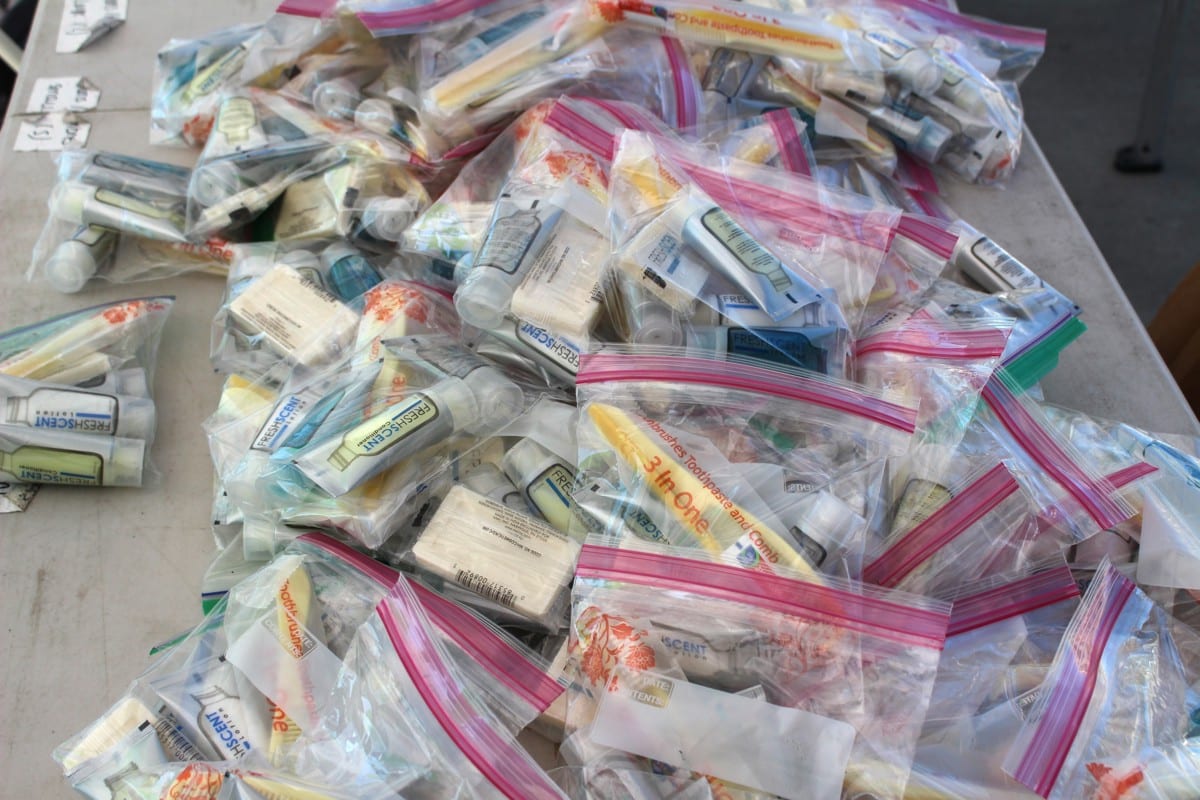15 de febrero 2024

Children of Exile: The Births “Sowing Hope” in the Camp of Nicaraguan Farmers

PUBLICIDAD 1M
PUBLICIDAD 4D
PUBLICIDAD 5D
Among the cases they highlight that of “Ignacio,” a Nicaraguan who claims to have been forced to discard the ashes of his father

Photograph dated June 2022 provided by the American Civil Liberties Union (ACLU) in Arizona showing a container with personal belongings confiscated from migrants near Yuma, Arizona. // Photo: EFE
The Border Patrol has “systematically” confiscated belongings, such as medications, documents, and personal items, from migrants detained at the border, reveals a report, which includes the case of a Nicaraguan migrant forced to throw away the ashes of his deceased father.
The report “From Hope to Rest: The Troubling Reality of the Confiscation of Migrants’ Belongings by the Border Patrol” described the confiscation of migrants’ belongings by the Border Patrol as “inhumane and indefensible.”
The report presented by the American Civil Liberties Union (ACLU) in Arizona, La Iniciativa Kino, Protect Az Health, and The Sikh Coalition documents cases in which border agents force migrants to discard personal documents, medications, and precious items with sentimental value to them when they reach the border between Mexico and the United States.
Together, these organizations interviewed 960 migrants between 2022 and 2023, painting a “concerning” picture of the belongings that were confiscated from them and that they never recovered.
Among the cases they highlight that of “Ignacio,” an immigrant who claims to have been forced by Border Patrol agents to throw away the ashes of his father, who died on the way from his native Nicaragua to the US in February 2022.
Researchers documented cases along the entire southwest border. In New Mexico, a mother reported that her five-year-old son had seizures while in Border Patrol custody because they never returned the medication they confiscated from her when they were detained.
The child was taken to a hospital, but upon returning under federal agency custody, again his medications and nutritional supplements prescribed by doctors were confiscated.

The study cites the practices implemented by the Border Patrol in the Yuma sector on the Arizona border, where “piles” and containers of garbage full of migrants’ personal belongings have been documented, which they are forced to discard under the orders of the processing agents.
Foreigners have also reported the confiscation of religious objects with great significance to them, such as turbans, prayer rugs, religious images, and rosaries, among others.
Immigrant advocacy organizations indicate that despite the complaints they have filed with the Department of Homeland Security, Customs and Border Protection, and Border Patrol, these practices have not ceased.
The report concludes by recommending that Customs and Border Protection allow migrants to retain as many of their personal belongings as possible, prioritizing documents that establish their identity and the basis for their asylum cases.
It also calls for ensuring that migrants in their custody have continuous access to any medication or medical device they possess at the time of their detention or that it be replaced with appropriate medication.
Finally, it requests that the federal agency redirect its policy regarding the confiscation of religious objects and clothing by incorporating the robust legal protections that the Religious Freedom Restoration Act provides to migrants.
This article was published in Spanish in Confidencial and translated by Havana Times. To get the most relevant news from our English coverage delivered straight to your inbox, subscribe to The Dispatch.
PUBLICIDAD 3M
Agencia de noticias internacional con sede en Madrid, España. Fundada en Burgos durante la guerra civil española en enero de 1939.
PUBLICIDAD 3D